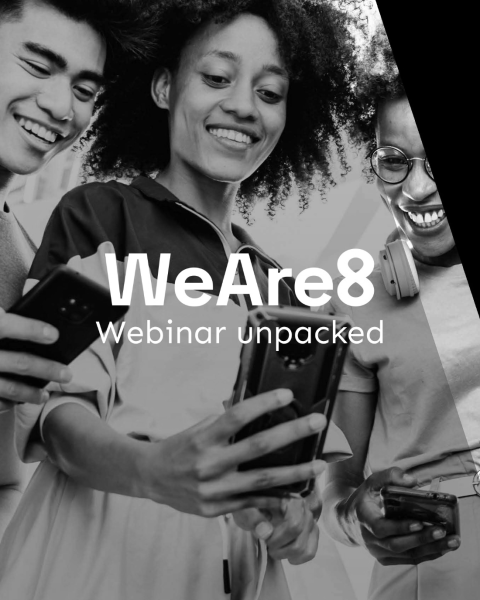A Shift We Can’t Ignore
For the first time in the 32-year history of the Times and Sunday Times Good University Guide, Oxford and Cambridge have both fallen out of the top three. London School of Economics has retained its #1 position, while St Andrews continues to shine in the top tier, and Durham has risen to its highest-ever ranking in this guide at #3.
What does this mean? Not that prestige no longer matters – it still does, and powerfully – but that the balance is shifting. League table performance now reflects a wider mix of pressures: employability, affordability, student satisfaction, and the support students receive while they study. For today’s applicants, reputation alone is no longer the trump card it once was. Let’s dig deeper into the changing landscape of Student Recruitment marketing…

Employability is Students’ Number One Priority
These days, going to university is just one of many options for school leavers. With a tricky job market, many are asking: is my degree going to be worth it?
It’s about more than lectures
Gen Z students want more than just lectures and seminars (1). They’re looking for variety in their learning and experiences that will prepare them for real-world jobs. Research shows 72% are most concerned with gaining skills that set them up for future success. That means courses that connect theory with practice and universities that open doors into industries.
Getting experience matters
Work placements, internships, apprenticeships. These are no longer “nice extras”. They’re essentials. Students want proof that their university will help them build networks and gain practical experience. We’re seeing this shift first-hand through our campaigns, with students engaging with this type of messaging more than ever before.
AI has changed the game
AI isn’t “about to” reshape the graduate and entry-level job market- it already has. A recent study (2) shows that opportunities have fallen fastest in roles where AI can fully automate the work, while areas where AI acts as an enhancer have been less affected.
The result? Significant drops in early career opportunities for graduates entering highly exposed fields like software development and customer support.
This puts pressure on universities to adapt. Offering courses that include future-proofed skills, digital literacy, and opportunities to work with new technologies is more important than ever.
Flexibility is key
Most students don’t know what career path they’ll end up in when they start their degree. Transferable skills and broad opportunities are becoming a big selling point. Universities that can show how their courses prepare students for a variety of industries will stand out.
Cost of Living is a Deciding Factor
The cost-of-living crisis is hitting everyone, and students aren’t immune. Maintenance loans aren’t stretching far enough, which is pushing more students to live at home. 15% now do, with commutes to campus averaging 26 minutes (3) – and it’s increasing every year.
Unfortunately, financial pressure means that the choice of where to study isn’t just about the university anymore. It’s about the city, the housing, and the overall affordability.
What Universities Can Do Next
With employability and cost of living taking centre stage, universities need to rethink how they talk to prospective students. Here are a few areas we’d focus on:
Address the real issues
Be upfront about whatyou’re doing to support employability and affordability. Whether it’s bursaries, employer partnerships, or career support, make sure students know you’ve got their backs.
Show students exactly how you’re providing that support. This could be through dedicated website pages outlining financial assistance, clear guidance from admissions or student services teams, one-to-one advice sessions, or examples of students who have successfully accessed placements or funding. By making the practical steps visible and easy to navigate, you turn abstract promises into tangible, actionable support that students can trust.
Use alumni stories
Nothing cuts through like real-life examples.Showcasing successful alumni is a powerful way to prove the value of a degree. When Birmingham City University came to us with concerns about students questioning whether university was “worth it,” we supported them with the promotion of the Look At Me Now campaign. By putting their alumni front and centre, we helped show the real impact of a BCU degree, and it worked.
Talk about life after graduation
Students are thinking long-term earlier than ever. Shout about your post-gradsupport, career services, and job outcomes. Make it clear how you’ll help them succeed beyond their degree.
Don’t dodge the cost conversation
It’s tempting to avoid the cost-of-living crisis in your messaging, but honesty wins. Show students what support is available, whether that’s funding, affordable housing, or on-campus facilities that ease the financial load.
Let data drive your campaigns
Once your messaging is spot on, the key is getting it in front of the right students. AtAdgen, we use audience insights to understand how students behave and where they’re spending time. That means we can reach them on the right channels with the right message.
Looking Ahead to 2026
Students are no longer swayed by prestige alone. They want value, they want opportunities, and they want support. For universities, that means adapting recruitment strategies to speak directly to those needs.
At Adgen, we help higher education institutions connect with students in ways that matter, using data-driven campaigns and powerful storytelling to show what makes each university stand out. As the landscape continues to evolve, those who keep pace with these priorities will be the ones to win students’ attention, trust, and applications in 2026 and beyond.
Sources:
(1): https://thepienews.com/72-of-gen-z-prioritising-outcomes-over-rankings/
(2): https://digitaleconomy.stanford.edu/wpcontent/uploads/2025/08/Canaries_BrynjolfssonChandarChen.pdf
(3): https://www.savethestudent.org/money/surveys/national-student-accommodation-survey-2025.html


